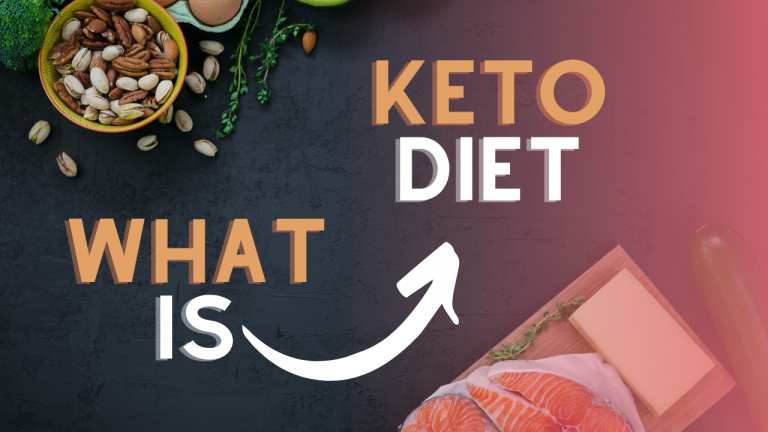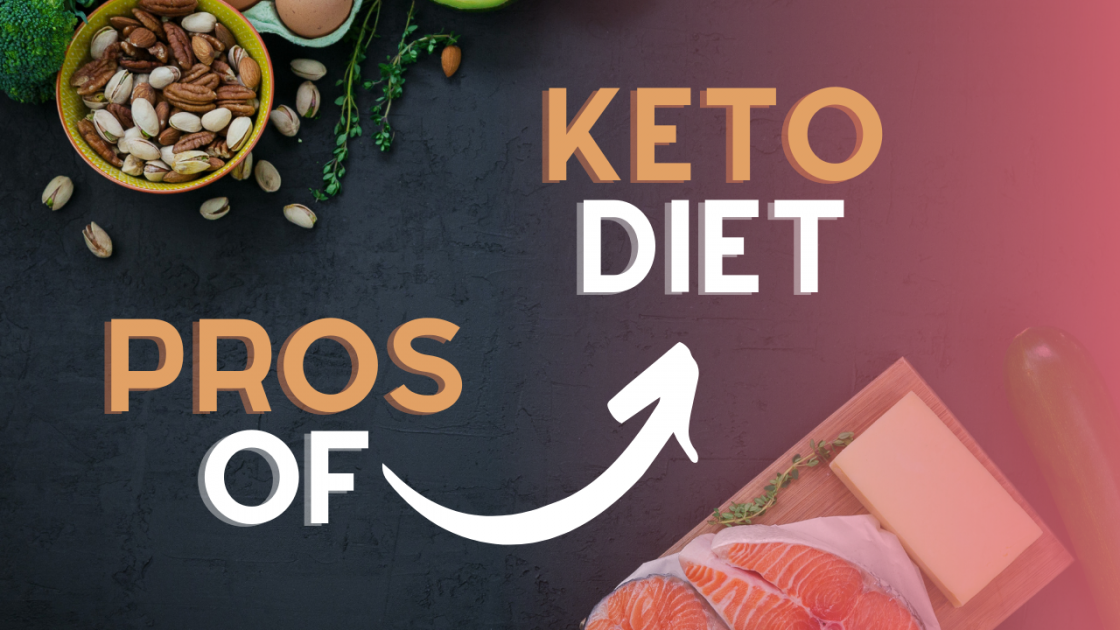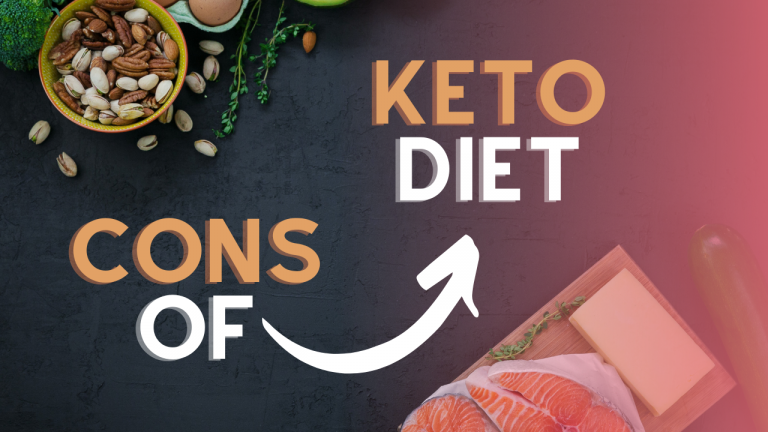Is the Keto Diet Safe? 10 Pros and Cons of Going Keto
If you’re considering going on the keto diet, you’re likely wondering if it’s safe. After all, it does involve cutting out a lot of foods that are generally considered healthy. In this blog post, we’ll take a look at the pros and cons of following the keto diet so that you can make an informed decision about whether or not it’s right for you.
What is the keto diet and how does it work?

The keto diet is a high-fat, low-carbohydrate diet that forces the body to burn fat for fuel instead of carbohydrates. When you eat a lot of carbs, your body converts them into glucose, which is then used for energy. However, when you cut back on carbs, your body has to find another energy source, and it turns to fat. This process is known as ketosis.
There are several reasons why people might want to try the keto diet. For example, it can help you lose weight, improve your mental clarity, and increase your energy levels. However, some risks are involved with going keto, so it’s important to know what you’re getting into before you decide to try it.
If you’re thinking about trying the keto diet, it’s important to weigh the pros and cons first. Here are some of the potential benefits of going keto:
Pros of the keto diet

Weight Loss – One of the most common reasons people try the keto diet is for weight loss. And it’s no surprise why – studies have shown that the keto diet can be very effective at helping people lose weight.
Reduced Hunger – Another benefit of the keto diet is that it can help to reduce hunger levels. This is because when you’re in ketosis, your body is better able to regulate blood sugar levels.
Health Benefits – The keto diet has also been shown to offer a number of health benefits. These include improved blood sugar control, reduced inflammation and improved cholesterol levels.
Improved mental clarity – For some people, the keto diet can also lead to improved mental clarity. This is because when your body is in ketosis, it’s using ketones for energy instead of glucose.
Reduce risk of certain cancer – Researchers have examined the effects of the ketogenic diet in helping prevent or even treat certain types cancers. One study showed that the keto diet may help to reduce the risk of ovarian cancer.
Improves acne – For many people, the keto diet can also help to improve their acne. Acne has several different causes and may have links to diet and blood sugar in some people. is a common skin condition that is characterized by the presence of pimples, blackheads, whiteheads, and other blemishes.
May improve heart health – The keto diet may also help to improve heart health by reducing risk factors for heart disease. One study found that the keto diet was associated with a lower risk of cardiovascular disease. However, positive effects of the diet on heart health depend on diet quality. Therefore, it’s important to eat healthful, nutritionally balanced food while following the keto diet.
May protect brain function – The keto diet may also protect brain function. One study found that the diet may help to reduce the risk of Alzheimer’s disease. Some studies, such as this 2019 review trusted Source, suggest the ketones that generate during the keto diet provide neuroprotective benefits, which means they can strengthen and protect the brain and nerve cells.
Improves PCOS symptoms – PCOS is a hormonal disorder that can cause problems with fertility, weight gain, and metabolism. The keto diet may help to improve some symptoms of PCOS. A small study showed that the keto diet improved insulin sensitivity and helped to lower testosterone levels in women with PCOS.
No More Low-Fat – On paper, burning fats by eating more of them is enticing, which is why the diet has become popular. The keto diet allows many people to eat the types of high-fat foods that they enjoy, such as red meats, fatty fish, nuts, cheese and butter, while still losing weight
However, there are also some potential downsides to consider before starting the keto diet that you should be aware of before you decide to try it:
Cons of the keto diet

Keto diet can make you feel sick
When you first start the keto diet, you may experience what’s known as the “keto flu.” This is a temporary condition that can be caused by your body adjusting to using ketones for energy.
Symptoms of the keto flu include fatigue, headaches, brain fog, and nausea. These symptoms typically last for a few days to a week and then go away on their own.
You may also experience constipation or diarrhea, as well as bad breath when you first start the keto diet. These side effects are typically due to your body adapting to a high-fat, low-carb diet.
Trouble getting through your normal gym routine
The keto diet can also make you feel tired and weak at first, which makes it hard to stick to your normal exercise routine. You may also find yourself feeling more hungry than usual, which can make it difficult to stick to the diet long-term.
Your ketosis may also give you halitosis
This is because your body is producing ketones, which can be released through your breath.
Keto can make you exceptionally thirsty
Your body will also start to excrete more water through your urine. This can lead to dehydration, which can make you feel thirsty and weak.
You may also experience headaches, dizziness, and lightheadedness due to dehydration.
Ketosis can seriously lower your alcohol tolerance
This is because your liver will be busy metabolizing ketones, which means it can’t process alcohol as efficiently. This can lead to you feeling drunk more quickly than usual.
If you have diabetes, the keto diet can be dangerous.
The keto diet can be particularly dangerous for people with diabetes because it can cause a sharp drop in blood sugar levels. This can lead to diabetic ketoacidosis, a serious condition that can be fatal if not treated immediately.
Carbohydrate Cravings
One of the most common complaints from people who have tried the keto diet is that they experience strong cravings for carbohydrates. This is because when you’re used to eating a diet high in carbs, your body can struggle to adjust to a low-carb diet.
Low energy levels
Another potential downside of the keto diet is that it can cause low energy levels. This is because when your body isn’t getting enough carbs, it can be difficult to maintain normal energy levels.
Difficult to Sustain
Another downside of the keto diet is that it can be difficult to sustain in the long term. This is because it’s a very restrictive diet, and it can be hard to stick to it for a long period of time.
It’s possible for the weight you lose during keto to come back rapidly once you stop the diet
This is because when you lose weight on any diet, it’s usually a mix of water weight, fat, and muscle. When you go off the keto diet and start eating carbs again, your body will quickly retain water. This can lead to rapid weight gain.
Some believe keto may mess with your cholesterol levels and affect your overall health
The keto diet can cause a temporary increase in cholesterol levels. This is usually due to the increased amount of fat you’re eating on the diet.
Some studies have also shown that the keto diet may have negative effects on your health in the long term. One study found that people who followed the keto diet for two years had higher levels of LDL (bad) cholesterol and Triglycerides.
Conclusion
So, is the keto diet safe? The answer to that question is complicated. There are a lot of pros and cons to going keto, and everyone’s body will respond differently. If you’re thinking of trying the keto diet, it’s important to do your research and talk to your doctor first. But if you decide the keto diet is right for you, we can help you make sure you stick with it and stay on track.



